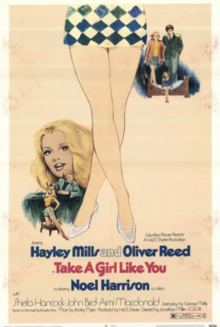
Sir John Mills was an English actor who appeared in more than 120 films in a career spanning seven decades. He excelled on camera as an appealing British everyman who often portrayed guileless, wounded war heroes. In 1971, he received the Academy Award for Best Supporting Actor for his performance in Ryan's Daughter.

Robert Oliver Reed was an English actor. After making his first significant screen appearances in Hammer Horror films in the early 1960s, his notable films include The Trap (1966), playing Bill Sikes in the 1968 Best Picture Oscar winner Oliver!, Women in Love (1969), Hannibal Brooks (1969), The Devils (1971), Athos in The Three Musketeers (1973) and The Four Musketeers (1974), the stepfather in Tommy (1975), The Brood (1979), Funny Bones (1995) and Gladiator (2000).

I'll Never Forget What's 'Isname, also known as The Takers, is a 1967 British comedy-drama film directed and produced by Michael Winner. It stars Oliver Reed and Orson Welles. The film deals with creativity and commercialism.

Hayley Catherine Rose Vivien Mills is a British actress. The daughter of Sir John Mills and Mary Hayley Bell and younger sister of actress Juliet Mills, she began her acting career as a child and was hailed as a promising newcomer, winning the BAFTA Award for Most Promising Newcomer for her performance in the British crime drama film Tiger Bay (1959), the Academy Juvenile Award for Disney's Pollyanna (1960) and Golden Globe Award for New Star of the Year – Actress in 1961.

Mark Lester is an English former child actor who starred in a number of British and European films in the 1960s and 1970s. In 1968 he played the title role in the film Oliver!, a musical version of the stage production by Lionel Bart based Charles Dickens' novel Oliver Twist. Lester also made several appearances in a number of British television series. In 1977, after appearing in the all-star international action adventure film The Prince and the Pauper, he retired from acting. In the 1980s, he trained as an osteopath specialising in sport injuries.

The Curse of the Werewolf is a 1961 British horror film directed by Terence Fisher and starring Clifford Evans, Oliver Reed and Yvonne Romain. It was based on the novel The Werewolf of Paris by Guy Endore. If was produced by Anthony Hinds for Hammer Film Productions.
Hal E. Chester, was an American film producer, writer, director, and former juvenile actor.
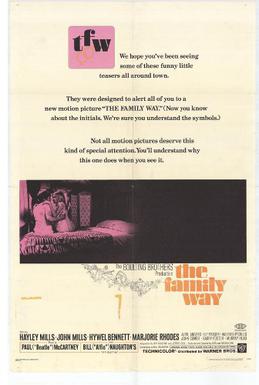
The Family Way is a 1966 British comedy-drama film produced and directed by John and Roy Boulting, respectively, and starring father and daughter John Mills and Hayley Mills. Based on Bill Naughton's play All in Good Time (1963), with screenplay by Naughton, the film began life in 1961 as the television play Honeymoon Postponed. It is about the marital difficulties of a young newlywed couple living in a crowded house with the husband's family.

Take a Girl Like You is a comic novel by Kingsley Amis. The narrative follows the progress of twenty-year-old Jenny Bunn, who has moved from her family home in the North of England to a small town not far from London to teach primary school children. Jenny is a 'traditional' Northern working-class girl whose dusky beauty strikes people as being at odds with the old-fashioned values she has gained from her upbringing, not least the conviction of 'no sex before marriage'. A thread of the novel concerns the frustrations of the morally dubious Patrick Standish, a 30-year-old teacher at a local private secondary school and his attempts to seduce Jenny; all this occurs against a backdrop of Jenny's new teaching job, Patrick's work and his leisure time with flatmate and colleague Graham and their new acquaintance, the well-off and somewhat older man-about-town, Julian Ormerod.

The Trap is a 1966 British-Canadian adventure western film directed by Sidney Hayers and starring Oliver Reed and Rita Tushingham. Shot in the wilderness of the Canadian province of British Columbia, the film is an unusual love story about a rough trapper and a mute orphan girl.

The Prince and the Pauper is a 1977 British action-adventure film directed by Richard Fleischer, based on the 1881 novel The Prince and the Pauper by Mark Twain. It stars Oliver Reed, Ernest Borgnine, Raquel Welch, George C. Scott, Charlton Heston, Sir Rex Harrison, and Mark Lester, playing the dual role of Edward VI of England and Tom Canty.

Pollyanna is a 1960 American comedy-drama film starring child actress Hayley Mills, Jane Wyman, Karl Malden, and Richard Egan in a story about a cheerful orphan changing the outlook of a small town. The film was written and directed by David Swift, based on the 1913 novel Pollyanna by Eleanor H. Porter. The film won Hayley Mills an Academy Juvenile Award. It was the last film of actor Adolphe Menjou.
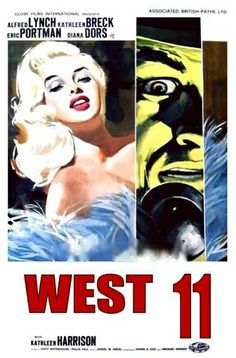
West 11 is a 1963 British crime film directed by Michael Winner and starring Alfred Lynch, Kathleen Breck, Eric Portman, Diana Dors, and Kathleen Harrison. It is based on The Furnished Room (1961), Laura Del-Rivo's debut novel, adapted for the screen by Willis Hall and Keith Waterhouse. Set in west London, the title is taken from the postcode W11.

The System is a 1964 British drama film directed by Michael Winner and starring Oliver Reed, Jane Merrow and Barbara Ferris. The writer was Peter Draper, who in this film popularised the word 'grockle' to mean a holiday visitor.
Take A Girl Like You is a song by The Foundations. It was used as the title theme song for the 1970 Jonathan Miller directed film Take a Girl Like You that starred Hayley Mills and Oliver Reed. The B side of the single "Im Gonna Be A Rich Man" was written by Foundations lead singer Colin Young.
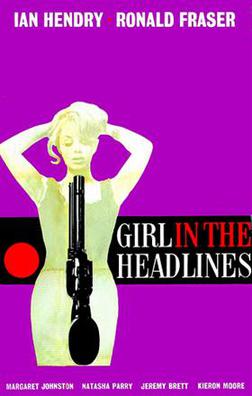
Girl in the Headlines is a 1963 British detective film directed by Michael Truman and starring Ian Hendry, Ronald Fraser, Jeremy Brett, and Jane Asher. It is based on the 1961 novel The Nose on my Face by actor Laurence Payne.

The Shuttered Room is a 1967 British horror film directed by David Greene and starring Gig Young and Carol Lynley. It is based on the 1959 short story of the same name by August Derleth, published as a so-called "posthumous collaboration" with H. P. Lovecraft. A couple move into a house with dark secrets.
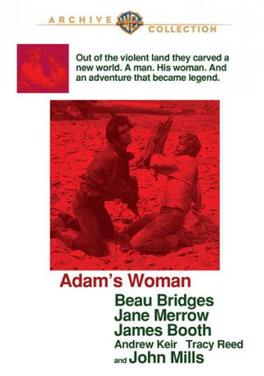
Adam's Woman is a 1970 Australian-American historical drama film directed by Philip Leacock and starring Beau Bridges, Jane Merrow and John Mills. It has been called a "convict Western".

Dr. Heckyl and Mr. Hype is a 1980 American comedy-drama horror romance film directed by Charles B. Griffith, starring Oliver Reed and Sunny Johnson.

Scalawag is a 1973 film directed by Kirk Douglas, his first of two films directed, the other being Posse. The film is a western re-telling of Treasure Island by Robert Louis Stevenson.
